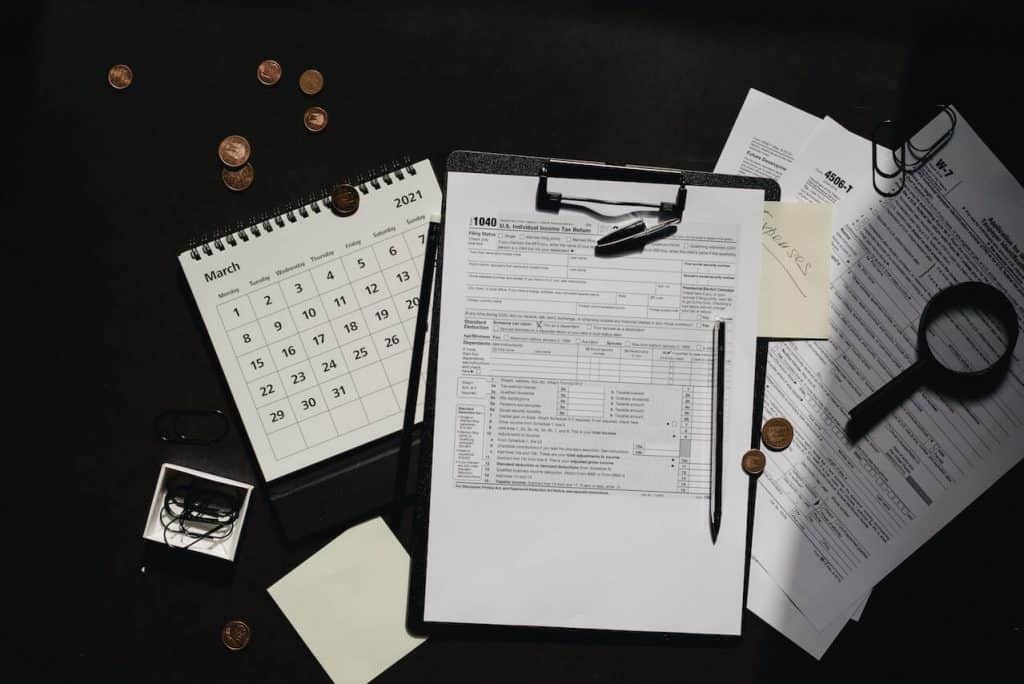Tax preparation can be done with help from tax preparation software, online resources, or professionals (e.g. CPAs). Regardless of how you prepare your tax return, there are often a lot of questions that arise during that process.
As accountants in Cedar Rapids IA, we have worked with hundreds of clients and are happy to help you work through those challenging questions. That’s why our team of CPA experts has put together answers to frequently asked questions about tax preparation. Keep reading to learn more.
1. What are the rules for claiming a dependent?
To claim your child as a dependent, they must meet the qualifying child test or the qualifying relative test.
A child must be:
- Be younger than you; and
- Be younger than 19 years old OR be a student younger than 24 years old
There is no age limit if your child is permanently disabled or meets the qualifying relative test.
In addition to meeting the qualifying child or qualifying relative test, you can claim that person as a dependent only if these three tests are also met:
- Dependent taxpayer test;
- Citizen or resident test; and
- Joint return test.
2. Should I choose standard deductions or itemized deductions?
Deductions can be confusing and many people are left wondering if they should choose standard deductions or itemized deductions.
The standard deduction lowers your income by one fixed amount, which is set by the IRS. Whereas, itemized deductions are a list of eligible expenses that can be deducted from your tax return. The decision will require some quick math to determine if your itemized deductions are more than the standard deduction. If that is the case then you should itemize your deductions to save money. While the standardized option is easier and requires less effort, you will want to explore your options to make sure you are saving as much money as possible.

3. Who can claim head of household?
Head of household is a filing status, similar to filing as single or married. It allows parents or adults with qualifying dependents who provide over half the cost of keeping up a home for a qualifying person to claim a higher standard deduction and be taxed at a lower rate than single taxpayers or those who are married filing separately.
While this might sound very appealing, it is important to ensure that you qualify for this status. To claim head of household, you have to be unmarried, pay over half the cost of maintaining your home and have a qualifying dependent person living with you more than half the year.
4. What is the difference between a tax credit and a tax deduction?
Tax credits and deductions both help decrease your taxes but in different ways. A tax credit reduces your tax liability and can give you a larger refund, while tax deductions lower your taxable income and the tax rate that is used to calculate your tax.
5. When should I expect to receive my tax forms?
The IRS requires employers to provide employees with a W-2 by January 31. If you were self-employed, instead of receiving a W-2, you will be sent the tax form 1099 used to report non-salary income.
It is best to hold off on preparing your taxes until that deadline has passed to ensure you have received all your tax forms.
6. What if I receive a tax form after I’ve filed and submitted my tax return to the IRS?
Once you have submitted your tax return to the IRS, any changes will require you to file an amended tax return using a special form called the 1040-X. The form will prompt you to enter the corrected information and explain why you are reporting a change on your original return. The good news is, that you do not have to redo the entire return, just amend the portion that needs changing.
7. Should I file online or by paper?
This comes down to personal preference. However, filing your return online is considered faster and more secure than mailing your tax return. Once you hit submit, your tax return is transmitted directly to the IRS computer systems. Whereas, when you mail in your tax return there is an increased risk of it getting lost or misplaced.

8. What is the deadline to submit my tax return?
The federal income tax deadline is April 15th. Make sure to check any other deadlines related to your tax return at the state or municipal level.
9. What happens if you don’t file taxes or miss the deadline?
Not filing your taxes could result in penalties and interest on the money owed. In some cases, not filing your tax return will prompt the IRS to submit a return on your behalf, which often results in higher taxes because of additional penalties and interest.
10. Is it worth it to work with a CPA tax professional?
A CPA tax professional can take the burden and stress of tax time off your shoulders. CPA’s are tax experts who have specialized knowledge on tax credits and deductions and tax laws to help maximize your return.
And if you’re a small business owner, please also see our blog on The Top 5 Tax Preparation Tips for Small Businesses in Cedar Rapids.
Still have questions? Contact us today and we’d be happy to answer any additional questions.
